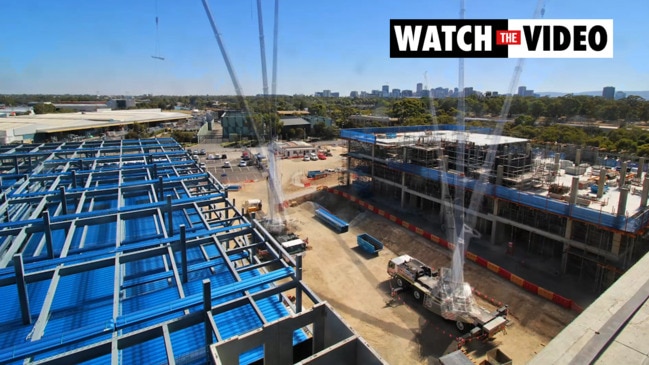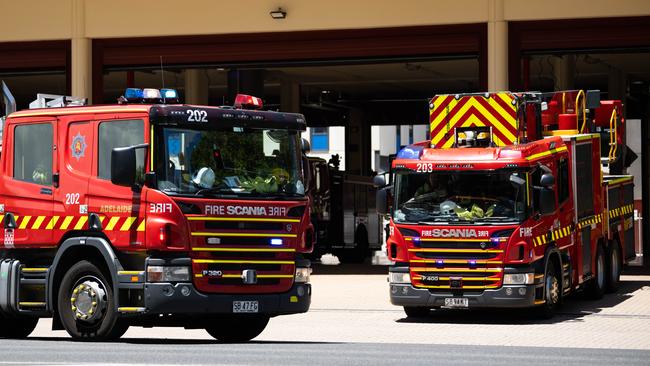Ten MFS fire stations across Adelaide and South Australia to be tested for cancer-linked PFAS chemicals
The MFS is testing 10 of its stations in Adelaide and at sites around the state for possible contamination from a cancer-linked substance once used in firefighting.

SA News
Don't miss out on the headlines from SA News. Followed categories will be added to My News.
The Metropolitan Fire Service is conducting testing at 10 if its stations to determine how contaminated they are with PFAS, a chemical that has been linked to cancer and other diseases.
Testing carried out so far has also said it is “possible’’ that contamination found at the Camden Park station had contaminated two wells within 2km of the site that were used for “recreational’’ purposes.
An MFS spokesman said there was no plan to close any stations.

“The MFS is actively assessing and monitoring the risks associated with PFAS contamination,’’ the spokesman said.
PFAS is a common chemical compound used in non-stick cookware and Scotchgard and has been around since the 1950s. It was a key ingredient in firefighting foam until the MFS stopped using it in 2014.
One US study linked six serious illnesses to PFAS, including kidney and testicular cancer. The SA Health website says while there is no “current evidence’’ that PFAS causes cancer, it confirms it’s also linked to increased cholesterol, reduced kidney function and lower birth weights in babies.
The 10 stations undergoing PFAS testing are Adelaide, Angle Park, Camden Park, Christie Downs, Largs North, Peterborough, Port Adelaide, Port Augusta, Port Pirie and St Mary’s.
Testing has cleared stations at Mt Barker, Noarlunga and Oakden, while a report on Brooklyn Park “is under review’’.
In 2018, firefighters at Largs North walked out of the station for a year after elevated PFAS levels were found in their blood and which sparked concerns about the impact on their long-term health.
The MFS spokesman said around 730 staff had been blood tested since 2018, but declined to say how many firefighters had recorded levels above average as it was “private medical information’’.
In the most recent testing, a report recommended the Adelaide station on Wakefield Street in the CBD close its on-site “water dam’’.
“The water dam contains surface water run-off from the site and likely contributes to the concentrations before being released to the stormwater system during overflow events,’’ the report says.
Elevated PFAS levels were also found in the groundwater at Camden Park. A report said further testing was necessary beyond the bounds of the fire stations after three test wells were found to be above “recommendations for human health drinking water’’.
It said there were two wells within 2km of the station identified for recreational use and it was “possible’’ that “incidental ingestion of contaminated groundwater’’ could occur if used for a purpose such as filling a swimming pool.
United Firefighters Union secretary Max Adlam said “PFAS continues to be an emerging risk not just for firefighters but the general community’’.




